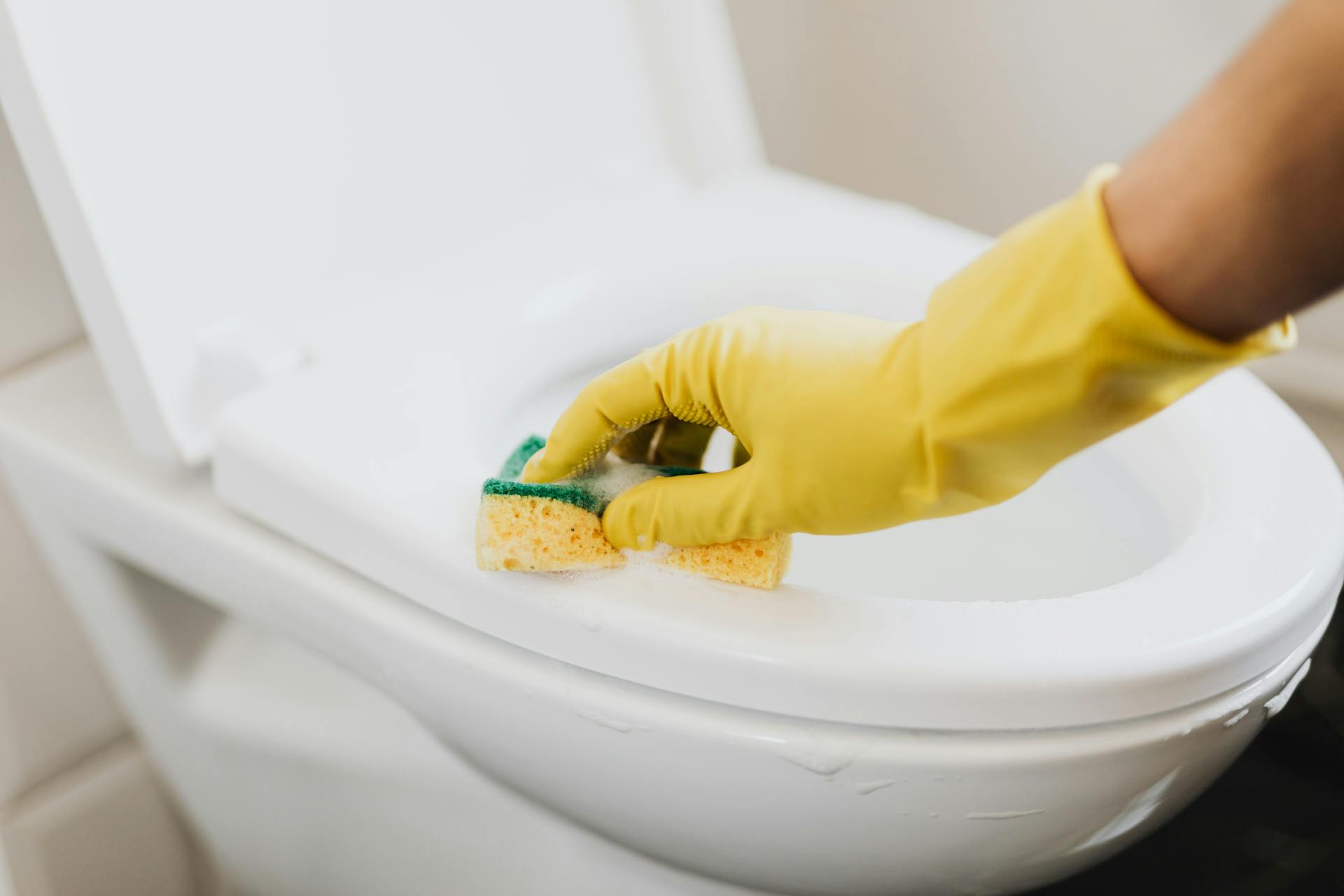
Hand hygiene is a critical part of maintaining good health, and it starts with proper hand washing. However, confusion exists around the hand hygiene process: should you use paper towels or hand dryers to dry your hands? A recent study found hand dryers to be equally hygienic compared to paper towels, but sensationalized news accounts and conflicting advice have created an underlying fear in the public's mind, especially during the coronavirus outbreak.
Hand drying experts recommend using touchless hand dryers that follow health organization guidance for a hygienic hand drying solution. Excel Dryer offers hands-under sensor-activated design that provides a tidy restroom environment giving visitors peace of mind. In this article, we will explore why hand dryers are crucial for proper hand hygiene and provide some crucial insights into how they work and the different types available.
Why Hand Hygiene is Crucial: Insights from the Experts
Proper hand hygiene is crucial in preventing the spread of diseases, especially coronavirus specifically. According to the World Health Organization and the Centers for Disease Control and Prevention, good hand hygiene is one of the most effective ways to avoid getting sick and spreading germs to others. Our hands are the primary way that germs spread, which is why it's essential to wash our hands completely and frequently.
A study published in Applied Microbiology found that paper towels are safer than hand dryers relative to human infection risks. Although both methods are equally hygienic for removing bacteria from washed hands, wet hands receive 1,000 times more germs than dry hands. The data considered in this study found that paper towels were more effective at removing bacteria from washed hands compared to hand dryers.
Despite credible health organizations' scientific results regarding proper handwashing and drying methods, misinformation about hand dryers remains online. Kelly Reynolds Ph.D., a professor of community environment policy director at Arizona's Zuckerman College of Public Health, offered a research study debunking misconceptions stating that "the influence of public opinion on choice of hand drying method could impact germ removal." Excels line of XLERATOR®, XLERATOReco® and XLERATOrsync™ hand dryers underwent protection viral efficiency testing conducted by preeminent independent air media filter testing company LMS Technologies in April 2020 and found to remove up to 99.999% of viruses from the airstream during use—the testing ranged from 380 million viruses per minute down to zero—all while using less energy than other high-speed options on the market today (coronavirus photo courtesy Excel Dryer).
Is the Type of Soap You Use Really Important?
The short answer is yes, the type of soap you use is important. Fact research has shown that plain soap and water are just as effective at killing germs as over-the-counter antibacterial soaps. In fact, the US Food and Drug Administration (FDA) banned antibacterial agents like triclosan in 2016 due to concerns about antibacterial resistance, systemic absorption, endocrine hormone disruption, and allergic reactions.
The reasons cited for the ban included the potential harm caused by these agents and the lack of evidence that they were any more effective than regular everyday soaps. So if you're still using older bottles of antibacterial soap stocked up in your bathroom cabinet, it's time to switch to regular liquid or bar soap.
But what about water temperature? Does it matter when washing your hands? A study conducted by researchers from Rutgers University found that warm water doesn't necessarily make a difference in removing germs compared to cold water. The bottom line is to wash your hands with regular soap and water for at least 20 seconds and avoid overusing antibacterial soaps that could potentially harm your health.
End of the Road: When it's Time to Give Up
Proper hand hygiene is a critical part of public health, and growing concerns guarantee that it will remain at the top of the defense against germs. With this in mind, it's important to have access to safe hygienic touchless solutions in public restrooms. The ultimate hygienic solution for achieving completely dry hands can be found in Xlerator and Excel hand dryers.
As recognized experts and voices advocating for high-performing sustainable built environment practices wed with critical public health issues, industry experts contribute opinion columns and member benefits to coverage sent straight from the latest news trends and research. Opinions expressed by these recognized experts help facility executives make informed decisions about which hand drying products are truly effective in keeping good hands healthy.
When it comes time to give up on traditional paper towels, Excel Dryer offers a sustainable alternative that helps address environmental concerns while ensuring proper hand hygiene. By staying up-to-date with the latest news and research straight from industry experts, facility executives can ensure they are making informed decisions about which products they choose to install in their facilities. And with Xlerator hand dryers excelling as a top choice for achieving completely dry hands, public health remains at the forefront of importance.
Mastering Hand-Washing: Follow These Essential Tips

Prevent infection and understand the importance of frequent hand-washing. Keeping your hands clean is one of the most effective ways to prevent the spread of germs and bacteria. Washing your hands properly with soap and water for at least 20 seconds can significantly reduce the risk of spreading illness. If you don't have access to soap and water, using hand sanitizer that contains at least 60% alcohol can also be effective in killing germs.
To avoid spreading illness, find opportunities throughout the day to wash your hands properly. This includes before eating or preparing food, after sneezing, coughing, or blowing your nose, after touching animals or handling animal waste, and after using the bathroom. Remember to rub your hands together vigorously for at least 20 seconds while washing with soap and warm water, making sure to clean all areas of your hands including under your nails and between your fingers. By mastering proper hand-washing techniques, you can help protect yourself and those around you from getting sick.
1. When to wash your hands
To keep your hands germ-free, washing them frequently with soap and water is key. You should wash your hands after touching people, surfaces, or objects that accumulate germs. Also, before and after treating wounds or eating food, after using the toilet or changing a diaper, after handling garbage, pet food or animal waste, and after removing contact lenses. In public places, be sure to wash your hands after touching frequently touched items like door handles, shopping carts or gas pumps. And if you're around a sick person who has a nose coughing or sneezing, wash your hands often to avoid spreading bacteria and viruses.
2. How to wash your hands
Hand hygiene is crucial in preventing the spread of germs. To wash your hands properly, wet them with water and apply regular soap or over-the-counter antibacterial soaps. Rub your hands vigorously for 20 seconds, remembering to clean all surfaces including your hands, wrists, and fingernails. Rinse your hands well and dry them with a clean towel. By following these simple steps, you can effectively kill germs and protect yourself from illness.
3. How to use an alcohol-based hand sanitizer
Alcohol-based hand sanitizers are an acceptable alternative to hand washing when water is not available. To use a gel product, place enough sanitizer in your palm to cover all surfaces of your hands and rub them together until they feel dry. Don't forget to hand check for complete coverage. Remember, alcohol-based hand sanitizers do not require water!
4. Kids need clean hands, too
Children stay healthy when they frequently wash their hands. To prevent rushing, suggest washing hands while singing the happy birthday song twice. Keep a step stool handy and supervise young children to ensure they wash properly. While alcohol-based hand sanitizers are effective, be sure to store the container safely to prevent alcohol poisoning from swallowing alcohol-based sanitizers.
What to Do When Soap and Water Are Unavailable?
Sometimes, handwashing isn't feasible, and soap and water are unavailable. In situations like these, alcohol-based hand sanitizers can be a viable option. The FDA has announced recalls of some hand sanitizers due to the potential presence of toxic alcohol, which can cause adverse effects such as nausea, vomiting, blindness, seizures, or even death when ingested. If you have any recalled products at home, immediately return them or dispose of them properly.
When using alcohol-based hand sanitizers, it's essential to apply them properly and follow the instructions on the label. Look for safe hand sanitizers containing ethanol, isopropanol, or n-propanol with an effective antimicrobial activity level of at least 60 percent alcohol solutions. Studies show that alcohol-based hand sanitizer formulations containing ethanol and isopropanol are effective in killing viral pathogens such as flu viruses and severe acute respiratory syndrome (SARS) coronaviruses as well as middle east respiratory syndrome (MERS) coronavirus.
To use an alcohol-based hand sanitizer correctly, apply one teaspoon onto your hands and rub vigorously making sure to cover all surfaces for at least 30 seconds until they are completely dry. Remember that hand sanitizers depend on how effectively you apply them so it's important to follow the correct steps. Finally, if you experience any adverse effects from using a hand sanitizer or have questions about its proper use or effectiveness contact your healthcare provider or call emergency medical services immediately.
Discover the Ultimate Truth: Unveiling the Bottom Line
Hand hygiene is a simple low cost evidence-based intervention that can significantly improve public hygiene practices. The covid-19 pandemic governments and community leaders worldwide have recognized the power of collective efforts towards improving hand hygiene practices. Plain soap and clean running water are the preferred method for hand hygiene, but alcohol-based hand sanitizers with at least 60 percent alcohol content are also an effective option.
Good hand hygiene isn't just a recommendation during disease outbreaks; it's a time-tested intervention that should be practiced consistently by every individual community. Medically reviewed studies have shown that good hand hygiene has the greatest effect on reducing the transmission of diseases. Therefore, we need to make it a habit to wash our hands properly with soap and water or use an alcohol-based sanitizer whenever possible for global health.
In conclusion, it's essential to understand that good hand hygiene is not just about personal cleanliness but also about protecting others around us from getting sick. Let's take responsibility for our own health and protect others by practicing good hand hygiene. By doing so, we can help prevent disease outbreaks from happening in the future and create a healthier world for everyone.
Frequently Asked Questions
Why is hand hygiene important?
Hand hygiene is important because it helps prevent the spread of germs and infections. By washing your hands regularly with soap and water or using hand sanitizer, you can protect yourself and others from getting sick.
Why is hand drying important?
Hand drying is important as it helps prevent the spread of germs and bacteria that can cause illnesses. Wet hands are more likely to transfer bacteria than dry hands, and using a hand dryer or paper towel can effectively remove moisture from the skin surface.
Is hand-drying hygienic?
Yes, hand-drying is hygienic as it helps to remove moisture from hands which prevents the growth of bacteria and reduces the risk of transmission of infection. However, it is important to use clean and well-maintained hand dryers or paper towels.
How do you wash your hands?
To wash your hands properly, wet them with clean running water and lather soap between your fingers, under your nails, and the backs of your hands. Scrub for at least 20 seconds before rinsing off the soap and drying with a clean towel or air dryer.
Is it better to use SOAP or water to wash hands?
It is better to use soap to wash hands as it helps remove germs and bacteria, while water alone may not be sufficient.
Featured Images: pexels.com


